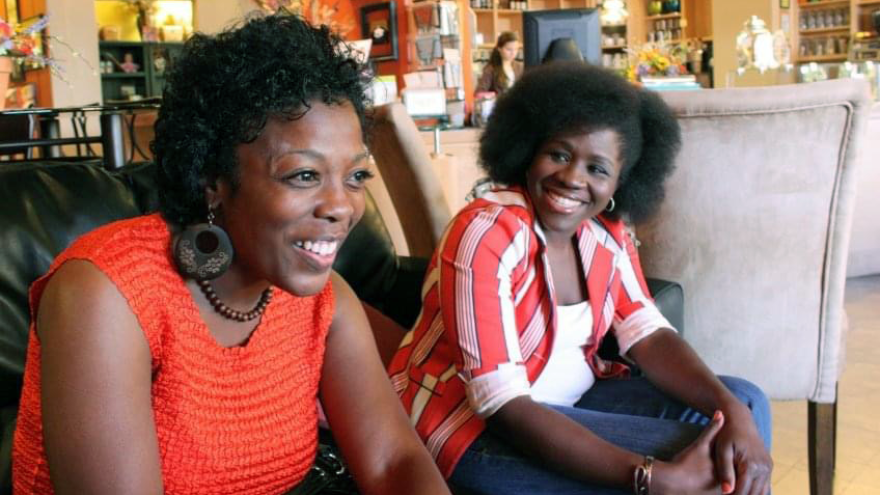A bill promoting the CROWN Act was discussed during a hearing this week at the Kansas Statehouse. Supporters hope this time the bill — that prohibits discrimination pertaining to hairstyles in the workplace — will become law. Wichita was the third city in Kansas to adopt the CROWN Act in October.
CROWN stands for Creating a Respectful and Open World for Natural hair.
Lai-L Daugherty, founder of the Wichita Natural Hair Expo, is among the supporters who've provided testimony on behalf of the bill. Daugherty says the measure resonates with her.
"It's important because I can recall [one] time when I was at work and I'm rockin' my fro, and I have like a little part over to the side and I think I look cute — I think I'm rockin' it, and I remember one of my co-workers ... working at the front desk [saying] to me 'Oh, you're not wearing your professional hair today?' And I was ... stunned."
Shocked and taken aback, Daugherty told her colleague that she didn't realize she wasn't looking "professional."

"Because I consider myself to be very professional when I'm in the work environment, especially when it comes to my hair and just the way I work in general."
Daugherty says it was unsettling.
"I was embarrassed and it was a microaggression. I recognize that and also it made me feel that I couldn't be myself in that environment. ...For me, I think that was also the moment when I realized that there [are] probably others like me that are facing this discrimination ... in the workplace based off of just their hair."
According to a 2023 study, Black women's hair are two-and-a-half times as likely to be perceived as "unprofessional." Black women are also one-and-a-half times more likely to be sent home from the workplace because of their hair.
NAACP's Kenya Cox got the idea to push for an anti-hair discrimination law in Kansas from a Black women's legislative conference in DC. Adjoa Asamoah, co-creator of the CROWN coalition, was a panelist.
"She was talking about the negative impact that the decision for African American women to wear their hair in natural and protective styles (braids, wigs, locks, etc.) had on them as it related to their employment and then also on their mental health," Cox says.

So Cox reached out to lawmakers and Kansas Sen. Oletha Faust-Goudeau readily agreed to introduce legislation and encourage other lawmakers to support the bill.
"This piece of legislation, Senate Bill 36, will fit nicely in existing law that we already have on the books regarding discrimination," Faust-Goudeau says.
And Cox says questions regarding dress codes and safety have been addressed.
"Occupations like welders [and] many in the food industry ... still have to adhere to safety standards so there is no prohibition in this legislation against those standards," Cox says.
Nearly 25 states have passed the CROWN Act and ordinances are on the books in Wichita, Lawrence and Atchison. Lai-L Daugherty is hopeful that the measure will pass at the state level.
"You should be able to wear your natural hair without there being any repercussions, without you being judged and without you feeling like you're being discriminated against."



